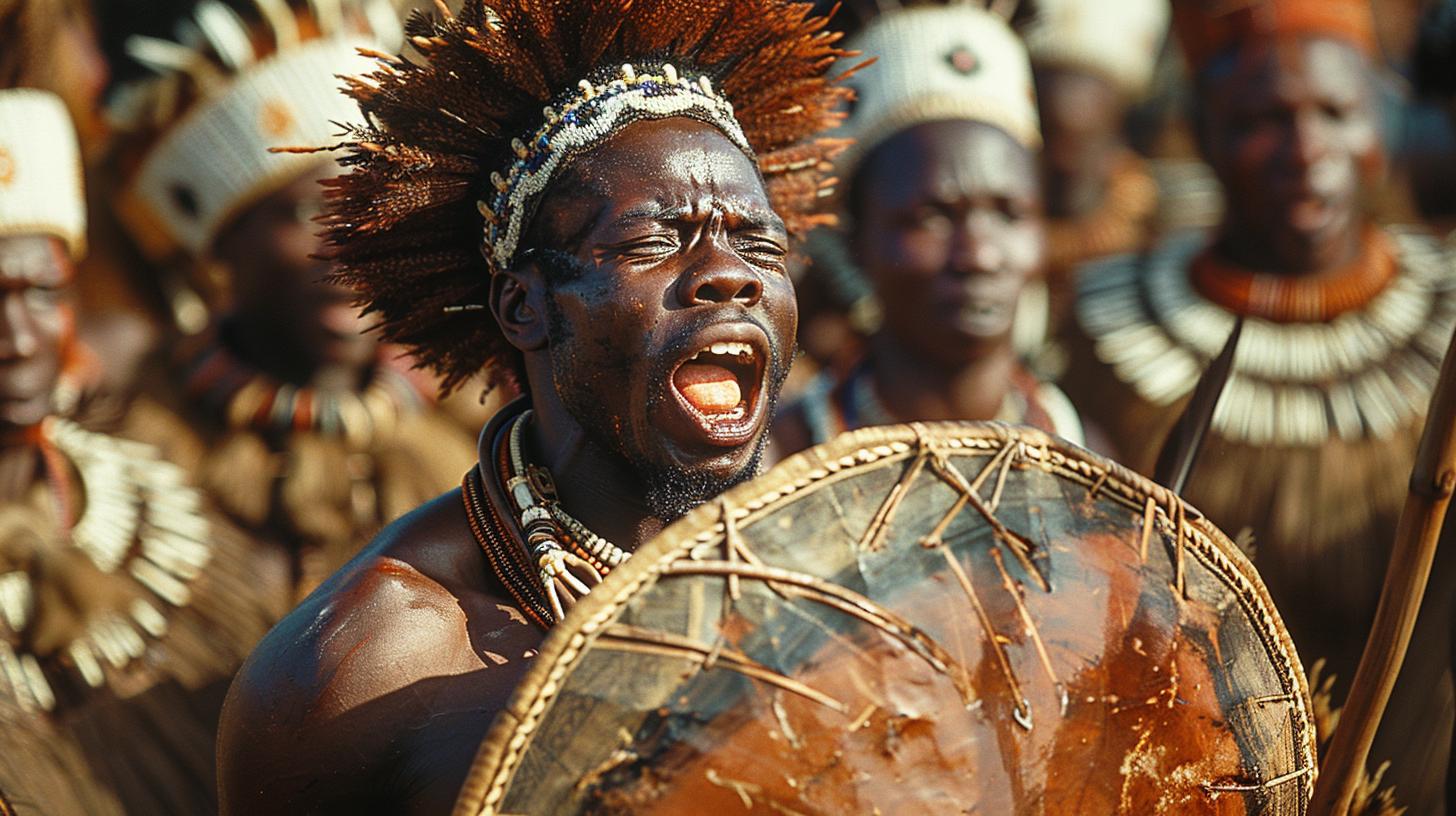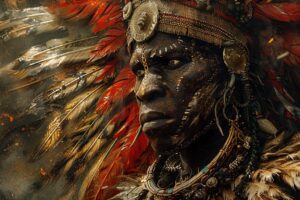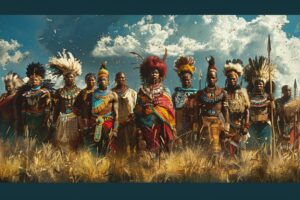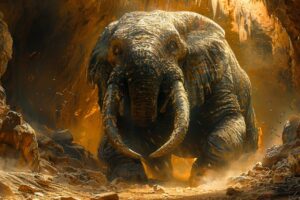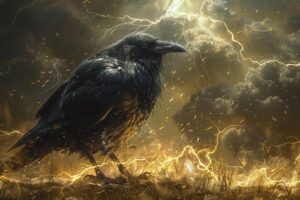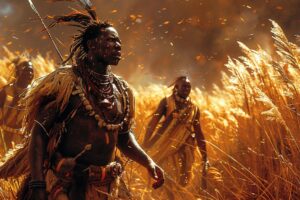Zulu Mythology Stories: Unveiling Ancient African Beliefs
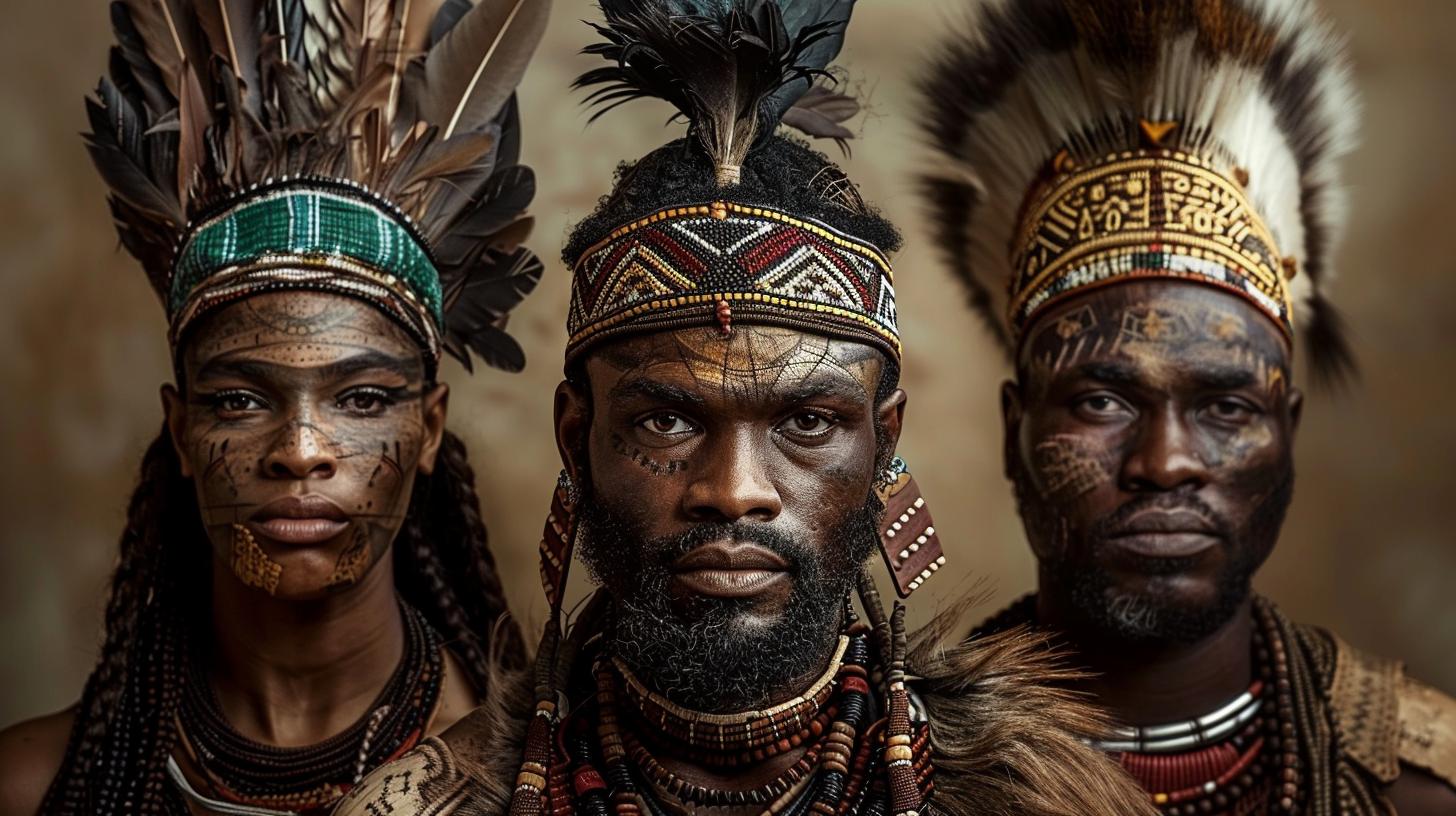
Zulu Mythology Stories hold significant cultural importance among the Zulu people, revealing insights into their beliefs and traditions. These stories, passed down through generations, explore themes of creation, mortality, and relationships with nature and the divine.
This article delves into various aspects of Zulu mythology, shedding light on its rich cultural heritage and enduring relevance today.
The Role of Unkulunkulu in Zulu Mythology
Unkulunkulu, the supreme creator figure in Zulu mythology, holds a central place in the beliefs of the Zulu people. Through various myths and stories, Unkulunkulu’s role as the creator of all things, including people, animals, and nature, is revered and respected.
Unkulunkulu’s Creation of People and Animals
According to Zulu mythology, Unkulunkulu emerged from the reeds and brought forth the first people and animals. This act of creation symbolizes the origins of life and the interconnectedness of all living beings in the world.
Unkulunkulu’s Creation of the Earth and Nature
In addition to creating people and animals, Unkulunkulu is credited with shaping the earth and the natural world. The mountains, rivers, and diverse creatures that inhabit the land are all believed to have been brought into existence by Unkulunkulu’s divine power.
Lessons from Zulu Mythology Stories
Zulu mythology stories offer valuable lessons that have been passed down through generations, reflecting the cultural values and beliefs of the Zulu people. These stories provide insights into various aspects of life, including mortality and the relationships between individuals and the world around them.
Lessons on Mortality and Creation
One of the key lessons from Zulu mythology is the understanding of mortality and the cycle of life and death. The stories explain how death is a natural part of existence and how it is intertwined with creation and rebirth.
By exploring these themes, individuals can gain a deeper appreciation for the interconnectedness of all living beings.
In addition, the myths emphasize the importance of honoring and respecting the natural order of life, including the cycles of birth, growth, and decay.
Through these stories, individuals are reminded of the impermanence of life and the need to cherish each moment as a precious gift.
Lessons on Communication and Trust
Another significant aspect of Zulu mythology is the focus on communication and trust within society. The tales underscore the importance of open and honest communication, as well as the value of building trust and mutual understanding among individuals and communities.
Through these stories, individuals learn the significance of clear and respectful communication in maintaining harmony and unity within their social circles. Trust is highlighted as a foundational element of relationships, emphasizing the need for transparency and honesty in all interactions.
Themes in Zulu Mythology
Exploring the themes present in Zulu mythology provides insight into the beliefs and values held by the Zulu people. These themes encompass various aspects of creation, spiritual beings, and the interconnectedness of humans with the natural world.
Creation of the Universe
The Zulu creation myth explains how the universe came into being, highlighting the role of Unkulunkulu in shaping the world and all living beings. This narrative reflects the Zulu people’s understanding of their origins and the forces that govern the cosmos.
The emergence of Unkulunkulu from the reeds symbolizes the birth of all existence, setting the stage for the creation of humanity and the diverse forms of life that inhabit the earth.
The formation of mountains, rivers, and animals by Unkulunkulu speaks to the interconnectedness of all living things and the importance of harmony in the natural world.
Deities in Zulu Mythology
Within Zulu mythology, various deities play significant roles in shaping the fate of humanity and the natural world. These divine beings embody different aspects of existence, from creation and fertility to protection and guidance.
Gods and goddesses such as Nomkhubulwane, the goddess of rain and agriculture, reflect the Zulu people’s reverence for the forces that sustain life and fertility in the land.
Other deities, like Inkosazana, the princess of the heavens, are revered for their role in mediating between humans and the spiritual realm, offering blessings and protection to those who honor them.
In conclusion, the themes present in Zulu mythology offer a glimpse into the cultural values and beliefs of the Zulu people, highlighting their deep connection to the natural world and the divine forces that shape their existence.
Cultural Significance of Zulu Mythology
Zulu mythology holds a profound cultural significance within the Zulu community, shaping their identity and worldview. The oral tradition of passing down these stories reflects a deep respect for heritage and ancestral wisdom.
Oral Tradition in Zulu Culture
The practice of oral storytelling in Zulu culture serves as a means of preserving history and passing on valuable knowledge from one generation to the next. Through these narratives, the Zulu people maintain a strong connection to their past and cultural heritage.
Role of Storytellers
Storytellers in Zulu culture play a crucial role in keeping the myths and legends alive. They are responsible for transmitting the stories with authenticity and reverence, ensuring that the cultural traditions are upheld and respected.
Community Engagement
Engagement with Zulu mythology stories fosters a sense of community and connection among the Zulu people. Sharing these tales strengthens social bonds and reinforces cultural values, promoting unity and solidarity.
Respect for Nature and Ancestors
Zulu mythology emphasizes the sacred relationship between nature, ancestors, and humanity. The reverence for the natural world and ancestral spirits is an integral part of Zulu culture, guiding their interactions with the environment and spiritual realm.
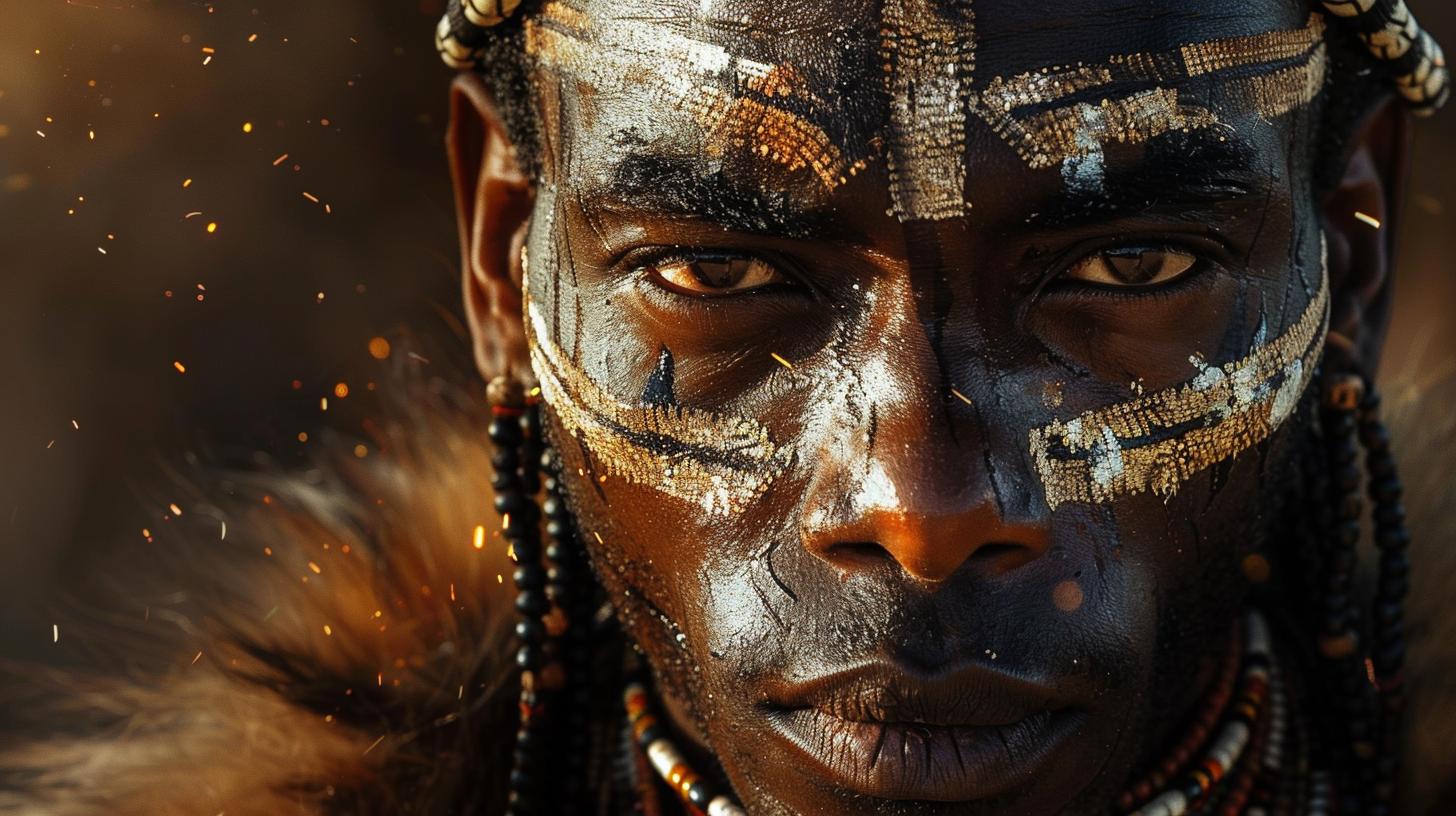
Harmony with Nature
The belief in the interconnectedness of all living beings encourages the Zulu people to live in harmony with nature. This respect for the environment and wildlife is rooted in the teachings of Zulu mythology, promoting sustainability and ecological balance.
Ancestral Reverence
Ancestral veneration is a central aspect of Zulu culture, as ancestors are believed to hold wisdom and guidance for the living. By honoring their ancestors through rituals and ceremonies, the Zulu maintain a strong spiritual connection to their heritage.
Critiques and Controversies Surrounding Zulu Mythology
Credo Mutwa’s Interpretations
Credo Mutwa, a prominent South African sangoma, has shared his interpretations of Zulu mythology stories in various publications. His unique perspectives have sparked debates among scholars and researchers, with some questioning the accuracy and authenticity of his accounts.
Some critics argue that Mutwa’s versions of the myths deviate from traditional oral sources, raising concerns about the reliability of his narrative. While Mutwa’s contributions have brought attention to Zulu mythology, the accuracy of his interpretations remains a subject of contention within academic circles.
Authenticity and Validity of Stories
The authenticity and validity of Zulu mythology stories have long been topics of debate among researchers and historians. While some narratives align with established cultural beliefs and oral traditions, others have been met with skepticism due to inconsistencies or lack of corroborating evidence.
Scholars continue to evaluate the credibility of these myths, considering factors such as cultural context, historical documentation, and intergenerational transmission. The quest for authentic interpretations of Zulu mythology remains ongoing, with critiques and controversies shaping scholarly discourse on African folklore and heritage.
The Lizard Man Story and its Meaning
The Lizard Man story is a prominent tale in Zulu mythology, illustrating themes of mortality, deceit, and consequences. This story speaks to the interconnectedness of communication and trust within the Zulu community.
Origin and Impact of the Lizard Man Story
- The Lizard Man story originates from ancient Zulu folklore, recounting a pivotal moment in the history of the Zulu people.
- Its impact on Zulu culture is profound, shaping beliefs about mortality and the relationship between humans and the natural world.
Symbolism and Interpretations
- The Lizard Man serves as a metaphor for deception and the inevitability of death in Zulu mythology.
- Interpretations of this story vary, reflecting differing perspectives on trust, communication, and the consequences of betrayal within the Zulu community.
Relevance of Zulu Mythology Today
The enduring relevance of Zulu mythology in modern times is evident in various aspects of contemporary Zulu culture.
From art to music, traditional beliefs continue to influence artistic expressions, preserving and celebrating the rich heritage of the Zulu people.
Influence on Modern Zulu Culture
Zulu mythology serves as a source of inspiration for contemporary artists, musicians, and storytellers within the Zulu community. Themes and symbols from ancient myths are often reinterpreted and incorporated into modern artistic creations, bridging the gap between past and present.
Continuation of Tradition in Contemporary Society
Despite the challenges of modernization and globalization, Zulu mythology remains a vital part of the cultural identity of the Zulu people. Traditional ceremonies and rituals infused with mythological elements are still practiced, serving as a link to the ancestral past and fostering a sense of community and continuity among present generations.
.

